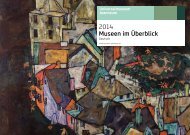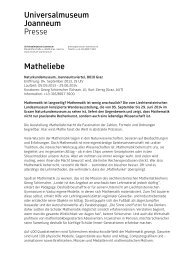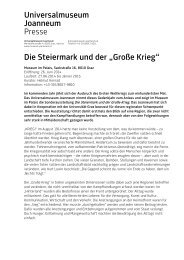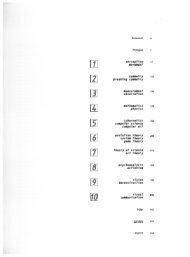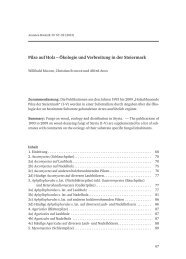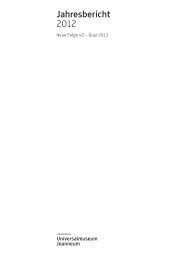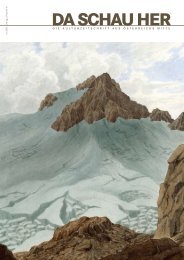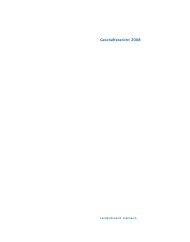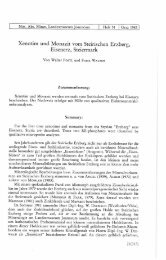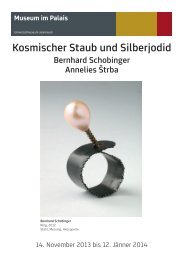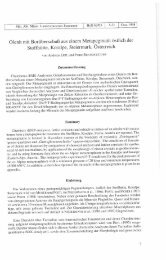freien Raum, einem Raum, der paradoxerweise durch eine technische „Einschränkung“ erst eröffnet wird: „Ich schaffe eine technologisch kontrollierte Situation, in deren Rahmen Tiere in stärkerem Maße ausdrücken können, wer sie wirklich sind, anstatt was wir aus ihnen, immer erfolglos, zu machen versuchen. (…) Die Technologie ist die Klammer und innerhalb dieser agiert die Natur. Diese Methode macht Freiheit sichtbar.“ <strong>Diana</strong> <strong>Thater</strong>: Ein Gespräch zwischen Carol Reese und <strong>Diana</strong> <strong>Thater</strong> anlässlich der Eröffnung von Delphine in der Wiener Secession, Wien, 2000. In: Delphine (2000), p. 24. 9 Heidegger, Die Grundbegriffe der Metaphysik, p. 361. 10 Agamben, Das Offene, p. 63. 11 Ebd., p. 78. 12 Dieser Satz wird in Das Offene auf p. 82 zitiert. Ursprünglich in: Martin Heidegger: Holzwege. Frankfurt am Main 1950, p. 35. 13 Agamben, Das Offene, p. 83, meine Hervorhebung. 14 Wie allgemein bekannt ist, hat Jeremy Bentham die nüchterne philosophische Meditation über das Leben des Tieres kurzgeschlossen – Hat das Tier eine Sprache? Lacht es? usw. –, indem er eine Frage aufwarf, deren Antwort gewiss und unleugbar ist: Können sie leiden? Zu Bentham und der Frage des Leidens des Tieres siehe Jacques Derrida: The Animal That Therefore I Am. Übers. von David Wills. New York: Fordham 2008, pp. 26–29. 15 Derrida baut The Animal That Therefore I Am / L’animal que donc je suis um eine Reihe von „Leugnungen“ oder „Ableugnungen“ herum auf, die gemäß seiner Argumentation von Descartes bis hin zu Lacan und Levinas den philosophischen Diskurs strukturieren. Das Buch ist in einem gewissen Sinne ein Katalog all jener Fähigkeiten, die dem Tier von diesem Diskurs abgesprochen werden: die Fähigkeit, „auf etwas einzugehen“, statt nur darauf zu reagieren, die Fähigkeit, seine Spuren zu verwischen, die Fähigkeit, „vorgeblich etwas vorzugeben“, und so weiter. Indem er sich auf die ganze psychoanalytische Terminologie der Leugnung beruft und seine Lesart dieser Tradition als Versuch beschreibt, „die Ursache dieser Ableugnung“ in dieser Konstellation der Diskurse zu „entziffern“, skizziert Derrida eine Art fetischistische Gespaltenheit, die der Reaktion der Philosophie auf das Tier innewohnt, bei der eine das Tier betreffende Wahrnehmung oder Erkenntnis so traumatisch ist, dass sie im Einklang mit der „normalen“ Ökonomie des psychischen Apparates gar nicht erst anerkannt und verdrängt werden kann, sondern vom philosophischen Subjekt radikal verworfen oder abgeleugnet werden muss. Diese Leugnung konstituiert das Subjekt als solches, ein Subjekt, das rund um eine Verwerfung oder innere Kluft gegliedert ist: Ich weiß, dass das Tier auf mich eingehen kann, doch ich möchte davon nichts wissen. Der Begriff „Leugnung“ strukturiert folglich eine Beziehung zwischen Wissen und Unwissenheit, Kenntnis und der Weigerung zu wissen, die für die Beziehung zwischen Mensch und Tier typisch ist. Die Einleitungsszene von Derridas Aufsatz, in der er in Bekennerform seine Scham dabei beschreibt, wenn ihn seine Katze nackt sieht, stellt einen Versuch dar, etwas einzuräumen oder einzugestehen, was alle Philosophen, die er analysiert, leugnen: dass man vom Blick eines Tieres, von dem man sagt, es wisse nichts über den Unterschied zwischen Nacktheit und Verborgenheit, gesehen werden kann und vor ihm Scham empfinden kann. Es sei, als ob keiner dieser Denker je von einem Tier gesehen worden wäre, sagt Derrida, als ob „ihr Blick nie den eines Tieres, der auf sie gerichtet war, gekreuzt hätte (vergessen wir das Nacktsein). (…) Sie haben immer die Tatsache außer Acht gelassen, dass das, was sie ‚Tier‘ nennen, sie anschaut und sich von hier unten an sie wendet, von einem gänzlich anderen Ursprung“ (p. 13). Genau diese philosophische Fiktion, das „Als ob“, das eine Erfahrung leugnet, die jeder schon gemacht hat, ist es, was Derrida in seiner autobiografischen Bezeugung oder Beichte umkehrt. In einem kurzen Aufsatz mit dem Titel „Leugnen wir das Menschliche im Tier?“ spricht der Verhaltensforscher Frans B.M. de Waal von einer ähnlichen Form der Leugnung, die den wissenschaftlichen Diskurs über das Tier strukturiert, und behauptet, es sei notwendig „anzuerkennen“, as it is, should be read as a response to Heidegger’s thesis that the animal is poor in world. Here, Nancy suggests that even the stone is “free” and therefore has a relation to the world, in which case it would be necessary to conclude that the animal, as well, moves in the free space of the open. But none of this is articulated thematically. Cf. L’experience de la liberté. Paris: Galilée, 1988. It is likely that Nancy also has in mind a famous letter Spinoza wrote to G.H. Schaller, where it is again a question of the stone and of freedom. In an interview with Carol Reese, <strong>Diana</strong> <strong>Thater</strong> articulates a relation between the animal and a certain free space, a space paradoxically opened by a technological “constraint”: “I create a technologically controlled situation, within which animals are free to express more fully who it is they are, rather than what it is that we try, always unsuccessfully, to make them be. (…) The technology binds, and within that, nature acts. This method makes freedom visible.” <strong>Diana</strong> <strong>Thater</strong>: A Conversation between Carol Reese and <strong>Diana</strong> <strong>Thater</strong> on the occasion of the opening of Delphine at the Secession, Vienna, 2000. In: Delphine (2000), p. 24. 9 Heidegger, The Fundamental Concepts of Metaphysics, p. 248. 10 Agamben, The Open, p. 55, tr. modified. 11 Ibid., p. 69. 12 This line is quoted in The Open, p. 72. The relevant English translation of this passage in found in Martin Heidegger: Basic Writings. Revised and Expanded Edition. ed. David F. Krell. San Francisco: Harper Collins Publishers 1977, p. 174. 13 Agamben, The Open, p. 73, my italics. 14 Jeremy Bentham, as is well known, short-circuited the sober, philosophical meditation on animal life—does the animal have language? does it laugh? and so on—by asking a question whose answer is certain and undeniable: can they suffer? On Bentham and the question of animal suffering, see Jacques Derrida: The Animal That Therefore I Am. transl. David Wills. New York: Fordham, 2008, pp. 9226–29. 15 Derrida organizes The Animal That Therefore I Am around a series of “denials” or “disavowals” that, according to his argument, structure the philosophical discourse on the animal from Descartes to Lacan and Levinas. The book is, in a sense, a catalogue of all of those capacities denied the animal by these discourses: the capacity to “respond” rather than react to a supposedly human language, the capacity to erase its traces, the capacity to “pretend to pretend”, and so on. By invoking the psychoanalytic register of disavowal, and characterizing his reading of this tradition as an attempt to “decipher” the “symptom of this disavowal” in this constellation of discourses, Derrida outlines a kind of fetishistic split internal to philosophy’s response to the animal, in which a perception or knowledge concerning the animal is so traumatic that is cannot even be acknowledged and repressed, according to the “normal” economy of the psychic apparatus, but must be radically rejected or disavowed by the philosophical subject. This disavowal constitutes the subject as such, a subject organized around a fault or internal cleft: I know that the animal can respond, but I don’t want to know anything about it. The term “disavowal”, then, structures a relation between knowledge and ignorance, knowing and a refusal to know, that is characteristic of the relation between the human and the animal. The opening scene of Derrida’s essay, in which he describes in a confessional mode his shame in being seen naked by his cat, represents an attempt to acknowledge, or avow, what all of the philosophers he analyzes deny: that one can be seen by, and feel shame before, the gaze of an animal that is said to know nothing of the difference between nakedness and
dass Tiere wie Schimpansen „weit eher unsere Verwandten denn Maschinen sind“, damit wir das Tier wenigstens ansatzweise „verstehen“. („Leugnen wir das Menschliche im Tier?“ In: Discover 18 (7), 1997, p. 50–53). Obwohl de Waals Beschreibung der Struktur der Leugnung weniger rigoros ist als die von Derrida, was angesichts des Kontexts keine große Überraschung ist, ist es dennoch bemerkenswert, dass sowohl der Philosoph als auch der Verhaltensforscher zur selben Formulierung gelangen. 16 Agamben, Das Offene, p. 101. 17 Zitiert in Agamben, Das Offene, p. 97 f. 18 Man beachte, dass das italienische „ignorare“, wie das französische „ignorer“, „nicht wissen“ bedeutet und nicht „ignorieren“. 19 Agamben, Das Offene, p. 99, meine Hervorhebung. Jason Smith 92 93 concealment. It is as if, says Derrida, none of these thinkers has ever been seen by an animal, as if “their gaze has never intersected with that of an animal directed at them (forget about being naked). (…) They have taken no account of the fact that what they call ’animal’ could look at them, and address them from down there, from a wholly other origin” (p. 13). It is this philosophical fiction, the “as if” that denies this experience that everyone has had, that is reversed by Derrida’s autobiographical testimony or confession. In a short essay called “Are We in Anthropodenial?”, the ethologist Frans B.M. de Waal speaks of a similar form of denial that structures scientific discourses on the animal, arguing that what is necessary, in order to begin to “know” the animal, is to “admit” that animals such as chimpanzees “are far more like our relatives than like machines” (“Are We in Anthropodenial?” In: Discover 18 [1997]: pp. 50–53). While de Waal’s articulation of the structure of “denial” is less rigorous than Derrida’s, as is to be expected given the context, it is remarkable that both the philosopher and the ethologist would arrive at the same formulation. 16 Agamben, The Open, p. 92. 17 Quoted in Agamben, The Open, pp. 89–90. 18 Note that the Italian “ignorare”, like the French “ignorer”, means to be unaware of, not to ignore. 19 Agamben, The Open, p. 91, my emphasis.
- Seite 1 und 2:
Diana Thater gorillagorillagorilla
- Seite 3 und 4:
∞
- Seite 5 und 6:
Kuratoren Adam Budak, Peter Pakesch
- Seite 7 und 8:
78 Jason Smith Das Tier loslassen (
- Seite 9 und 10:
Diana Thater, Untitled Videowall, 2
- Seite 11 und 12:
Anmerkungen 1 Julia Voss: Darwins B
- Seite 13 und 14:
The comfort lavished by animals …
- Seite 15 und 16:
Folgende manifestartige Aussage von
- Seite 17 und 18:
in sich birgt, etwas zu verhandeln,
- Seite 19 und 20:
und dem Außen des Kreises auftauch
- Seite 21 und 22:
von Verzeichnissen angefangen, als
- Seite 23 und 24:
Hollis Frampton, Zorns Lemma, 1970
- Seite 25 und 26:
und wird gleichzeitig betrachtet. D
- Seite 27 und 28:
Frederick J. Kiesler, Endless House
- Seite 29 und 30:
ersten, bald aber brutal und schlie
- Seite 31 und 32:
dem schöpferischen Bewusstsein des
- Seite 33 und 34:
Diana Thater, Delphine, 1999 Instal
- Seite 35 und 36:
Diana Thater, Orange Room (Wallflow
- Seite 37 und 38:
Eine Trennung ohne Wunde, Erwartung
- Seite 39 und 40:
aber nicht für das Licht‘; das G
- Seite 41 und 42:
Anmerkungen 1 Giorgio Agamben: „T
- Seite 43 und 44: 63 Luce Irigaray: An Ethics of Sexu
- Seite 45 und 46: Mein erster Gorilla von Paul du Cha
- Seite 47 und 48: Filmszene aus King Kong, 1933, Regi
- Seite 49 und 50: Entwicklungsinitiativen. Dabei gilt
- Seite 51 und 52: Cynopithecus niger oder Makak-Affe.
- Seite 53 und 54: Nahaufnahmen ein. Die 150-jährige
- Seite 55 und 56: Anmerkungen 1 Charles Darwin: The E
- Seite 57 und 58: Besucher des Yerkes Regional Primat
- Seite 59 und 60: Skelett von „Lucy“, ein Hominin
- Seite 61 und 62: Gleichwohl ist es gerade diese Ähn
- Seite 63 und 64: schließlich trug sie ihr eigenes 1
- Seite 65 und 66: Frans B. M. de Waal 62 63
- Seite 67 und 68: 1 Als Diana Thater das dokumentaris
- Seite 69 und 70: melancholische Kettenreaktion, ein
- Seite 71 und 72: Arnies Klon zu feiern. Seine Tochte
- Seite 73 und 74: Diana Thater, Electric Mind, 1996 I
- Seite 75 und 76: Anmerkungen 1 Diana Thater: „I Wa
- Seite 77 und 78: Not even the lark sees the open. Ma
- Seite 79 und 80: edemption, so too the essential dis
- Seite 81 und 82: Greiforgane besitzt z.B. der Affe,
- Seite 83 und 84: die These einer neuen Deklination w
- Seite 85 und 86: Nichts eröffnet, dann definiert er
- Seite 87 und 88: Nach seiner Erörterung dieser Unte
- Seite 89 und 90: Denkmodell eingeschrieben werden, a
- Seite 91 und 92: Agamben legt jedoch in weiterer Fol
- Seite 93: Anmerkungen 1 Einige talmudische Tr
- Seite 97: Rainer Maria Rilke Duino Elegies: T
- Seite 100 und 101: animal, an, being, one, the, the hu
- Seite 102 und 103: anthropodenial, becomes impossibl
- Seite 104 und 105: order, being-to-being, cross, face-
- Seite 106 und 107: DuinoElegies, Eighth Elegy, Raine
- Seite 108 und 109: evolution, of morality, of thought,
- Seite 110 und 111: Geri gorillagorillagorilla hands,
- Seite 112 und 113: man, I’m so tired of them, see al
- Seite 114 und 115: Nyum open, face opposite, the other
- Seite 116 und 117: question, immensity of the represen
- Seite 118 und 119: TheOpen:ManandAnimal, Giorg
- Seite 124 und 125: Credits gorillagorillagorilla wurde
- Seite 126 und 127: Dies sind ihre Namen These Are Thei
- Seite 128 und 129: Biografie Bibliografie Diana Thater
- Seite 130 und 131: 1999 Carnegie International 1999/20
- Seite 132 und 133: 1997 Cameron, Dan. Glocal Warming.
- Seite 134 und 135: 1996 Basel (CH). Kunsthalle Basel.
- Seite 136 und 137: Biography Bibliography Diana Thater
- Seite 138 und 139: 1999 Carnegie International 1999/20
- Seite 140 und 141: 1997 Cameron, Dan. Glocal Warming.
- Seite 142 und 143: 1996 Basel (CH). Kunsthalle Basel.
- Seite 144 und 145:
Autoren Authors Bergit Arends ist s
- Seite 146 und 147:
Diese Publikation erscheint anläss
- Seite 148 und 149:
Das Werk ist urheberrechtlich gesch
- Seite 150 und 151:
Kunsthaus Graz am Landesmuseum Joan



